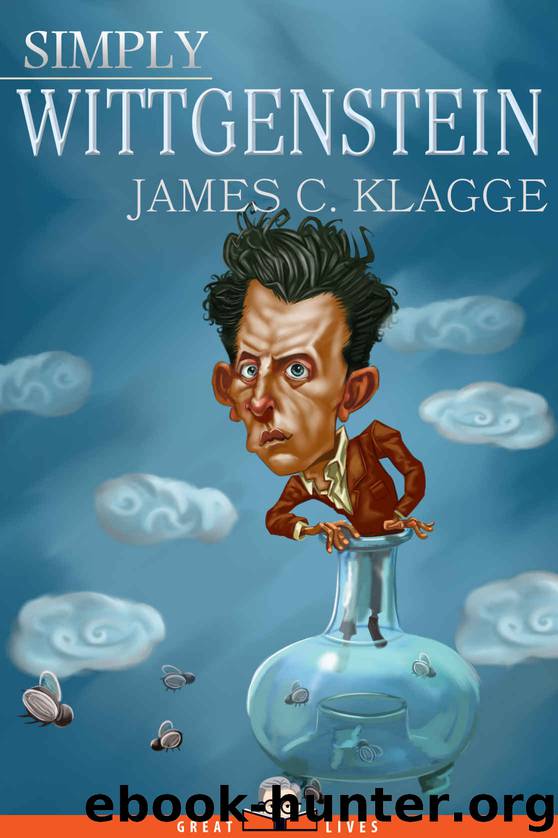Simply Wittgenstein by James C Klagge

Author:James C Klagge [Klagge, James C]
Language: eng
Format: epub
Tags: BIO000000, BIO009000
ISBN: 9781943657049
Publisher: Simply Charly
Published: 2016-06-17T04:00:00+00:00
The gesture Sraffa used was akin to giving someone the finger. Sraffa’s point was that a gesture could convey meaning in the way language does, and yet it does not do so by representing a state of affairs. It does not get meaning by sharing a logical form. Language does not have to be representational. Another friend said Wittgenstein’s “discussions with Sraffa made him feel like a tree from which all branches had been cut” (MM, p. 15). And Wittgenstein himself testified to Sraffa’s impact on his thinking in the Preface to the Investigations.
Even if ethical judgments, say, do not describe reality, the language in which they are expressed may serve other functions. Wasn’t the account in the Tractatus of how language has sense correct? “Yes,” he says, “but only for [a] narrowly circumscribed area, not for the whole of what” we call language (PI §3).
When Wittgenstein set out to write about his new views he began by contrasting them with a picture of language he found in St. Augustine’s Confessions (PI §1). He told a friend that he chose to begin the Investigations with this passage from St. Augustine “not because he could not find the conception expressed in that quotation stated as well by other philosophers, but because the conception must be important if so great a mind held it” (MM, pp. 59-60). In fact, the passage has important things in common with his own view in the Tractatus: “The words in language name objects—sentences are combinations of such names…. Every word has a meaning. This meaning is correlated with the word. It is the object for which the word stands” (PI §1).
During the war, Wittgenstein’s understanding of language had been shaped by the use of a model in a legal court to represent a traffic accident. But now he was prompted by a different comparison: “One day when Wittgenstein was passing a field where a football [in the US: soccer] game was in progress the thought first struck him that in language we play games with words” (MM, p. 55). This seems to be the origin of Wittgenstein’s notion of “language games.”
Download
This site does not store any files on its server. We only index and link to content provided by other sites. Please contact the content providers to delete copyright contents if any and email us, we'll remove relevant links or contents immediately.
Hit Refresh by Satya Nadella(9133)
When Breath Becomes Air by Paul Kalanithi(8446)
The Girl Without a Voice by Casey Watson(7889)
A Court of Wings and Ruin by Sarah J. Maas(7845)
Do No Harm Stories of Life, Death and Brain Surgery by Henry Marsh(6941)
Shoe Dog by Phil Knight(5267)
The Rules Do Not Apply by Ariel Levy(4969)
A Higher Loyalty: Truth, Lies, and Leadership by James Comey(4963)
Hunger by Roxane Gay(4928)
Tuesdays with Morrie by Mitch Albom(4784)
Everything Happens for a Reason by Kate Bowler(4743)
The Immortal Life of Henrietta Lacks by Rebecca Skloot(4588)
Millionaire: The Philanderer, Gambler, and Duelist Who Invented Modern Finance by Janet Gleeson(4478)
How to Change Your Mind by Michael Pollan(4356)
All Creatures Great and Small by James Herriot(4322)
The Money Culture by Michael Lewis(4207)
Man and His Symbols by Carl Gustav Jung(4135)
Elon Musk by Ashlee Vance(4127)
Tokyo Vice: An American Reporter on the Police Beat in Japan by Jake Adelstein(3996)
